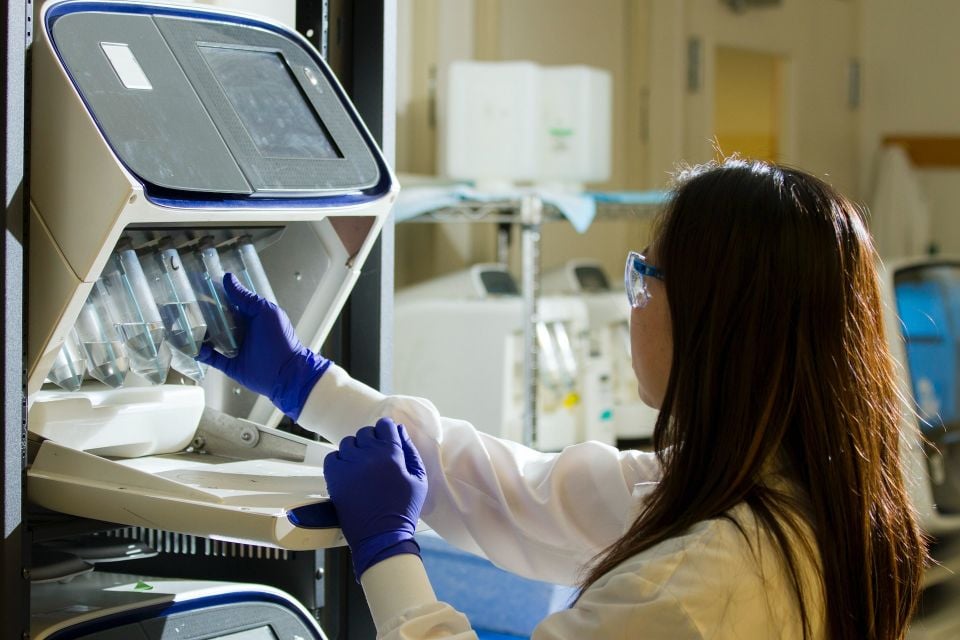
The Importance of ERP for Research Management
Life Sciences businesses are relatively unique. They have long lead times between investments and commercialization, leading to unpredictable revenue streams and cash flow gaps. The cost of research and development also can be a significant drain on resources, requiring precise tracking and allocation so budgets stay in line.
One important tool that helps life sciences firms manage this juggling act is an enterprise resource planning solution (ERP). An ERP solution is particularly important for research management.
An ERP solution is a robust backend software system that handles and coordinates all aspects of an organization’s operation, from human resources and financial management to ingredient sourcing, production and manufacturing, distribution, and quality control.
Read about contract pharmaceutical maker TriRX’s ERP journey and how the company ramped up manufacturing and commercialization in less than 90 days.
Life sciences firms may have heard about ERP from an early-stage investor or consultant, but usually, ERP comes up in the context of production, commercialization, or proving an organization has its finances and backend infrastructure in order. What many life sciences businesses don’t realize is that ERP also significantly helps with managing the R&D process.
Explore Cloud ERP Solutions for Research & Development
Where ERP Helps with Research Management
ERP helps life sciences firms focus on the science instead of the logistics of research management.
There are several ways that ERP helps with research management.
1. Improves Budgeting and Cost Control
The real-time visibility that comes from an ERP solution helps life sciences businesses better manage research budgeting.
Operational, financial, and research data all are connected within an ERP solution, enabling life sciences businesses to see where research spending is occurring and compare this real-time spending against budget allocations.
The analytics within an ERP solution can spot spending trends and automatically help guide research teams toward actions that help them stay within budget, and ERP can make short work of recalculating budgets when unexpected spending is required or a life sciences firm receives a new round of financing.
Automatic flagging and notifications within an ERP solution also can assist staff and research project leads when costs are getting out of control, and help research project managers spend more time on the research side of R&D instead of needing to focus on the financial side.
2. Enhances Project Governance
ERP can manage all aspects of an R&D project so project managers have full visibility throughout the entire project for better, more complete project governance.
This real-time visibility is achieved by having the cloud-based ERP solution serve as the central nervous system for research and development projects, including applications for project management, contact management, financial management, formula and documentation management, resource sourcing, and an audit trail of who handled what materials.
From a single dashboard, R&D teams can see exactly where a research project stands and ensure there is no project creep, delays, or budget issues.
3. Speeds Up Reporting
Investors and sponsors want a clear picture of the life sciences business or research project they are funding. As every life sciences business knows, reporting is a fact of life.
ERP can take the pain out of project reporting. Automation within an ERP solution can automatically generate reports based on research project status, including actions taken, results uncovered, hours spent, where and how much capital has been consumed, and other details required by investors or sponsors.
With ERP, these reports also can pull from more than just project data, including data from or correlated with other parts of the life sciences business.
4. Increases Inter-departmental Cooperation and Collaboration
With ERP, life sciences businesses can connect every department within the organization, allowing integrated, end-to-end process flows and data sharing across the organization where appropriate.
By housing all data within an ERP solution that serves as a single source of truth, life sciences businesses can better connect research teams with other areas of the business for improved communication and collaboration.
Even when teams work across geographies, the cloud-based, comprehensive nature of an ERP solution brings a level of visibility, communication, and coordination usually only found in the lab.
5. Helps with Research Analysis
There are several ways that ERP assists R&D projects with analysis.
First, ERP makes data accessible in a single, centralized system so research teams can better see and work with all the data related to a research project. Research data that lives in spreadsheets or application silos reduces the speed and effectiveness of the data that has been collected for a project.
Second, the centrality and connectivity inherent in an ERP solution means this data can easily be connected with artificial intelligence systems and third-party analytics engines that can help analyze research data.
Third, an ERP can automatically perform complex calculations based on data within the system, and flow these calculations into custom or templated dashboards for easier analysis by research teams and data scientists.
ERP Is Less Expensive Than You Think
A modern ERP solution prepackaged for life sciences businesses with all the functionality needed for research and commercialization, can be rolled out in as little as 30 days and for a price of roughly $350,000.
This is a tier-1 SAP ERP solution, not a lite version, which means the system will handle research and development, the general ledger, accounts payable and receivable, procurement, inventory management, internal project management, fixed assets, and treasury.
For life sciences businesses that are serious about research management or curious about how ERP can help, contact one of our experienced ERP consultants by calling (801) 642-0123 or writing us at info@nbs-us.com.


